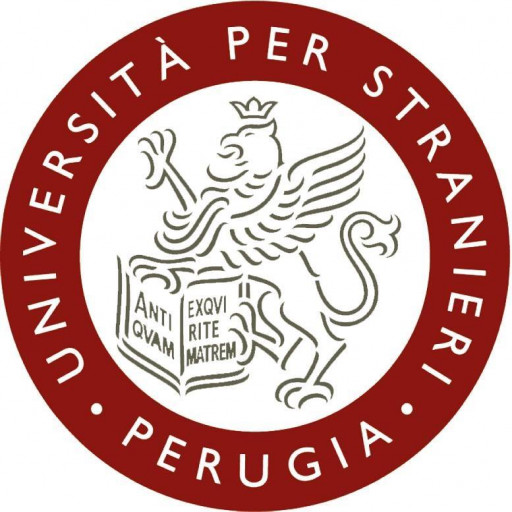Photos of university / #uofglasgow
The University of Glasgow's International Banking and Finance program offers students a comprehensive understanding of the global financial sector, focusing on the dynamic and complex world of banking, financial markets, and investment management. This undergraduate degree is designed to equip students with the essential skills and knowledge necessary to thrive in a competitive financial environment. Throughout the program, students explore key topics such as financial analysis, corporate finance, financial regulation, risk management, and the functioning of international banking systems. Emphasizing both theoretical foundations and practical applications, the course integrates case studies, financial software training, and real-world scenarios to prepare students for careers in banking, investment firms, financial consultancy, and regulatory agencies.
The curriculum covers a wide range of subjects including macroeconomics, microeconomics, quantitative methods for finance, banking operations, and international financial markets. Special modules are dedicated to understanding the impact of globalization on banking practices, the role of central banks, financial stability, and the regulatory environment governing the financial industry worldwide. Students also gain insight into ethical considerations and corporate social responsibility within financial institutions, emphasizing the importance of integrity and professionalism.
The program benefits from close links with industry professionals and academic experts, offering opportunities for internships, networking events, and guest lectures. These engagements enable students to develop practical skills, build industry contacts, and gain a clearer understanding of potential career paths. The University of Glasgow’s state-of-the-art trading room and dedicated finance laboratories provide an interactive environment for students to practice trading, analyze financial data, and execute financial strategies using modern software tools.
Graduates of the International Banking and Finance program are well-positioned to pursue a variety of careers worldwide, including roles as financial analysts, banking officers, compliance managers, investment advisors, or further postgraduate studies in finance and related fields. The program’s rigorous academic foundation, combined with practical experience and industry engagement, ensures that students are prepared to meet the challenges of the fast-paced global financial industry and make a meaningful impact in the field of international banking and finance.
The MSc International Banking and Finance at the University of Glasgow offers a comprehensive and rigorous curriculum designed to prepare students for a successful career in the global financial sector. This program provides a deep understanding of the fundamental principles of banking, financial markets, and financial institutions, with an emphasis on international aspects and contemporary issues facing the industry today. Students will explore the core areas of financial analysis, risk management, banking operations, and financial regulation, equipping them with the analytical tools necessary to navigate complex financial environments.
Throughout the course, students will engage with topics such as international banking operations, monetary policy, investment analysis, corporate finance, and the role of financial technology in modern banking. The program emphasizes practical skills and real-world applications, supported by case studies, simulations, and projects that help bridge the gap between theory and practice. In addition, students will develop a strong awareness of the regulatory frameworks governing financial institutions across different countries, including Basel accords, anti-money laundering laws, and consumer protection regulations.
The MSc International Banking and Finance also offers opportunities for specialization through optional modules, allowing students to tailor their studies to their career interests. These may include areas such as actuarial finance, financial risk management, and fintech innovations. The programme benefits from the university’s strong connections with financial institutions, offering networking opportunities, guest lectures, and internships that enhance employability upon graduation.
Moreover, the programme encourages critical thinking, ethical decision-making, and a global perspective, reflecting the interconnected nature of international banking and finance markets. Graduates of this programme will be well-equipped to pursue careers in banking, investment management, financial consultancy, regulation, or further academic research. With a combination of academic rigor and practical insights, the MSc International Banking and Finance at the University of Glasgow prepares students to excel in the fast-paced and dynamic world of international finance.
The International Banking and Finance programme at the University of Glasgow requires applicants to have completed relevant prior education, typically including a strong background in mathematics and economics. Prospective students should possess a good high school graduation certificate or equivalent qualification with proficiency demonstrated through academic records. The programme emphasizes quantitative skills, so prior knowledge of mathematics, including algebra, calculus, and statistics, is advantageous. English language proficiency is mandatory for non-native speakers, and accepted tests include IELTS with a minimum overall score of 6.5, with no sub-score below 6.0, or equivalent scores in other recognized English language tests. The admission process evaluates academic performance, motivation, and potential to succeed in a challenging financial programme.
The curriculum is designed to give students comprehensive knowledge of international banking systems, financial markets, and the global economy. Students will engage with core modules covering financial theory, financial regulation, banking operations, international monetary systems, and risk management. Elective courses allow specialization in areas such as foreign exchange markets, investment banking, or financial technology. The programme encourages practical learning through case studies, group projects, and guest lectures from industry professionals.
To complete the degree, students are required to earn a specified number of credits, typically involving coursework, examinations, and a final dissertation. The duration of the programme is generally three years for full-time students, with options for part-time study available. Entry deadlines are usually in January or September, with applications submitted through the university's admissions portal. International students must also provide visa documentation and meet any additional country-specific requirements.
The university values diverse student backgrounds, so economic or business-related experience is not mandatory but considered beneficial. Throughout the programme, students develop analytical, quantitative, and communication skills essential for careers in banking, finance, and related sectors. Successful graduates are equipped to pursue roles in international banks, financial consultancies, regulatory agencies, or continue their studies at postgraduate level.
The International Banking and Finance program at the University of Glasgow offers a comprehensive curriculum designed to provide students with in-depth knowledge of the global financial system, banking operations, and financial markets. The program covers essential topics such as banking regulation, financial analysis, risk management, and international financial markets, equipping students with both theoretical understanding and practical skills necessary for a career in banking and finance industries worldwide. Students benefit from a combination of lectures, case studies, and practical projects, enabling them to apply financial theories to real-world scenarios. The program also emphasizes the development of analytical and quantitative skills, including financial modeling and data analysis, which are critical for assessing financial performance and making strategic decisions in banking. In terms of career prospects, graduates are well-prepared for roles in banking, financial consulting, asset management, and other financial services sectors. The program maintains strong links with industry partners, offering networking opportunities, guest lectures, and internships that enhance employability. Students can also access a variety of resources through the university’s finance laboratories and library services, supporting their research and coursework. The program pathway aligns with professional standards set by financial industry organizations, ensuring that graduates meet key qualifications required by employers. Overall, the International Banking and Finance program at the University of Glasgow provides a rigorous, globally oriented education that prepares students for the dynamic and evolving financial landscape.
International Banking and Finance at the University of Glasgow is a comprehensive degree programme designed to provide students with a thorough understanding of the global financial system and the role of banking within it. The curriculum covers a wide range of topics including banking operations, financial markets, investment analysis, risk management, corporate finance, and financial regulation. Students will gain insights into the functioning of international financial institutions and the impact of regulatory frameworks on banking practices worldwide. The programme emphasizes both theoretical knowledge and practical skills, preparing graduates for careers in banking, financial services, investment firms, regulatory agencies, and related sectors.
Throughout the course, students have the opportunity to engage with current issues facing the global banking industry, such as financial stability, technological advancements like FinTech, and evolving regulatory standards post-financial crises. The programme incorporates case studies, group projects, and practical assessments that simulate real-world banking scenarios, fostering analytical and strategic thinking skills essential for success in the finance industry. Additionally, students are encouraged to develop strong quantitative skills and proficiency in financial software, which are critical in today’s data-driven banking environment.
The University of Glasgow’s international focus is reflected in the diverse student body and the inclusion of contemporary global banking issues. The faculty comprises experienced academics and industry professionals who bring practical insights to their teaching. Opportunities for internships, workshops, and networking events with financial institutions are often integrated into the programme, providing students with invaluable industry exposure and professional development opportunities.
The programme is designed to be flexible, often offering options for part-time study alongside full-time, accommodating students who may be working or have other commitments. Graduates of the programme are well-equipped to enter the banking sector or to pursue further specialization through postgraduate study. The University’s strong reputation in business and finance-related disciplines ensures that students receive a high-quality education rooted in current industry standards. Overall, the International Banking and Finance degree aims to develop sophisticated understanding, critical thinking, and practical skills that are essential for navigating and shaping the future of global banking and financial services worldwide.









